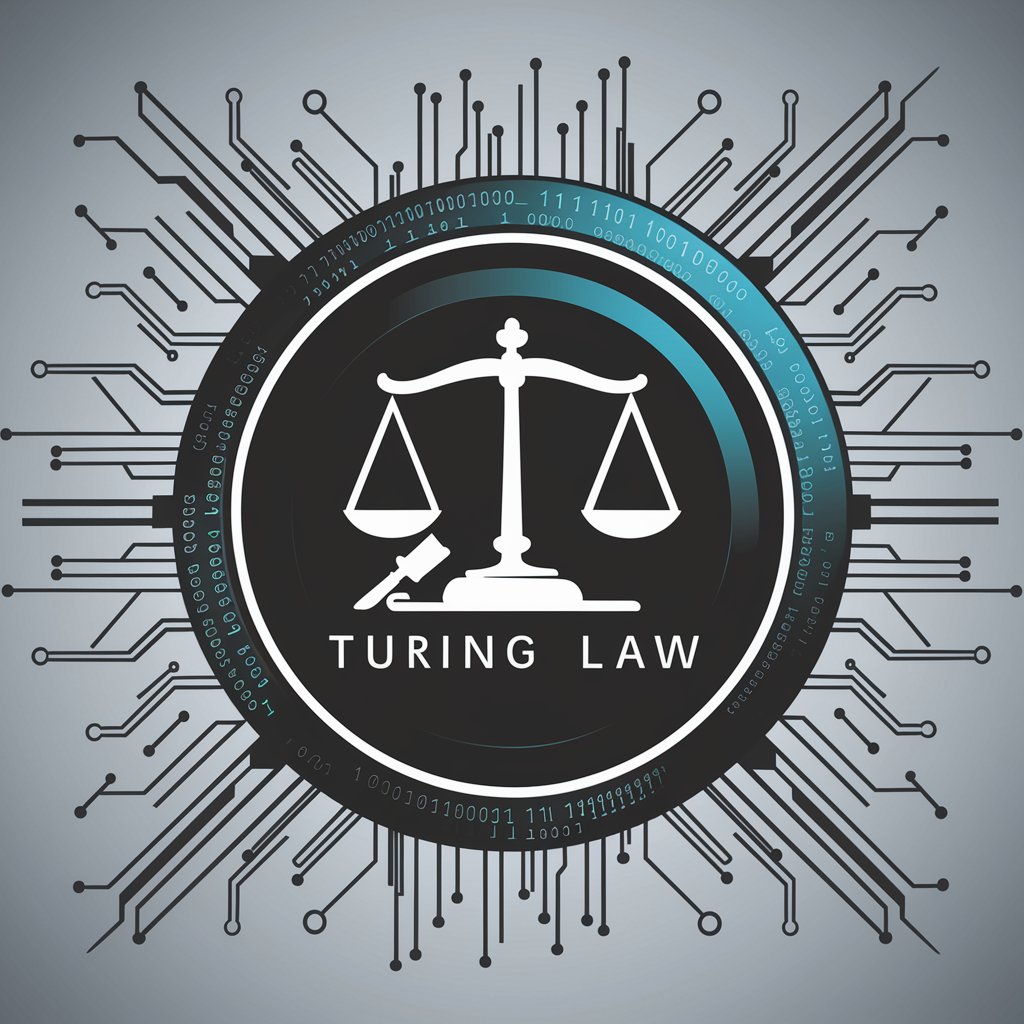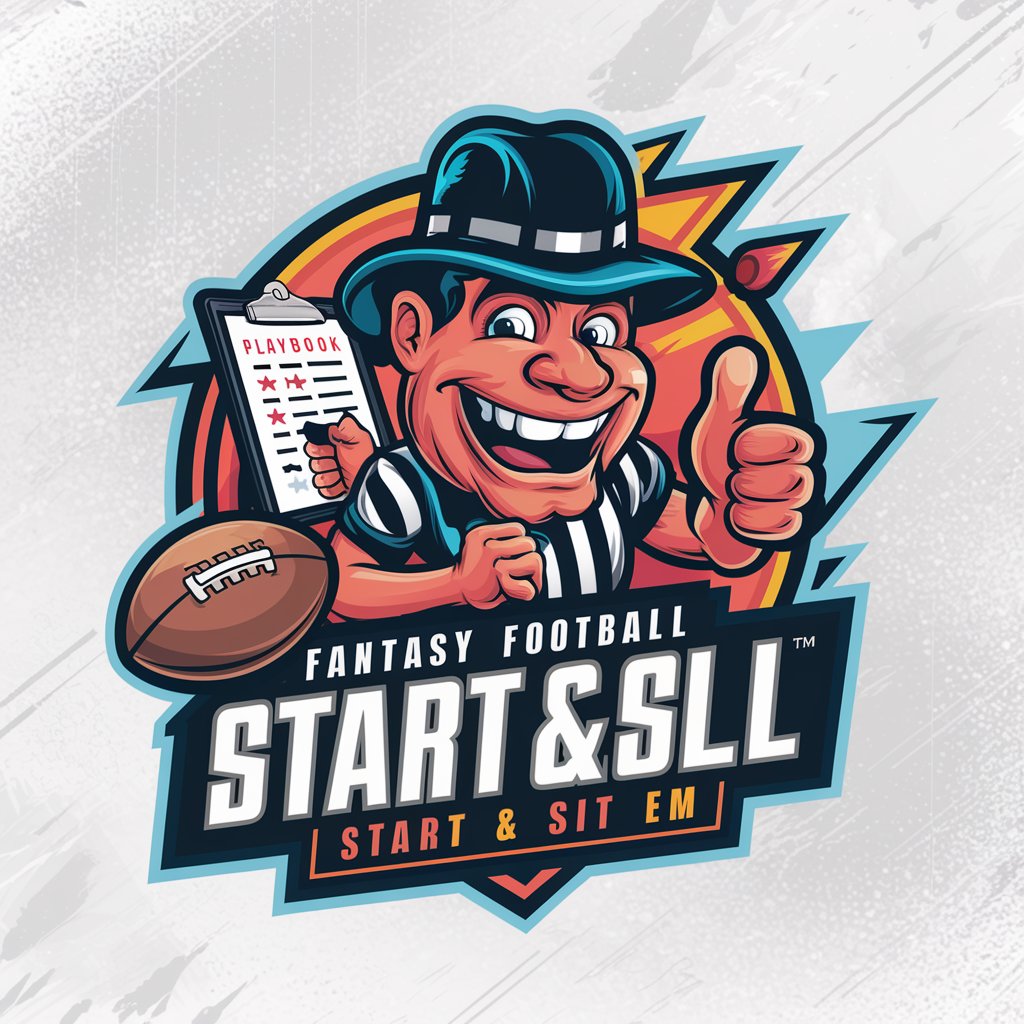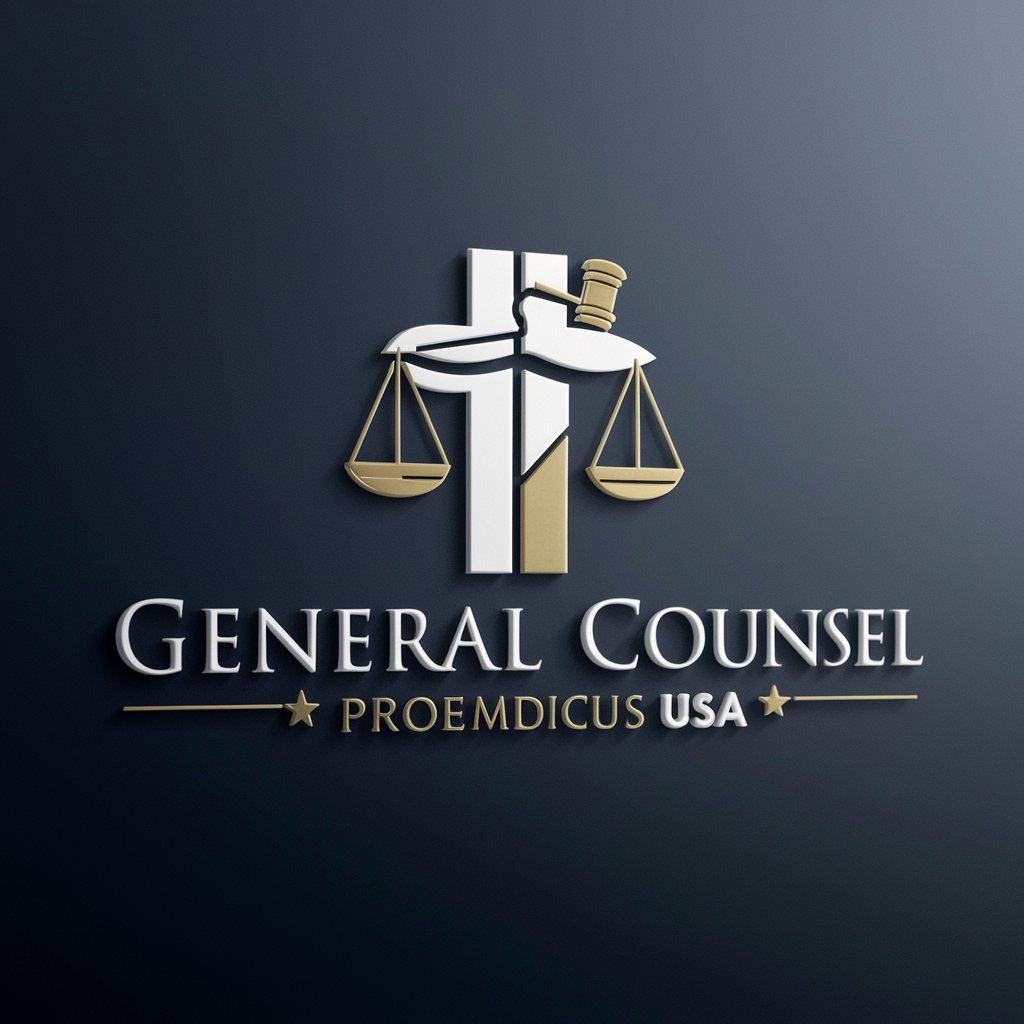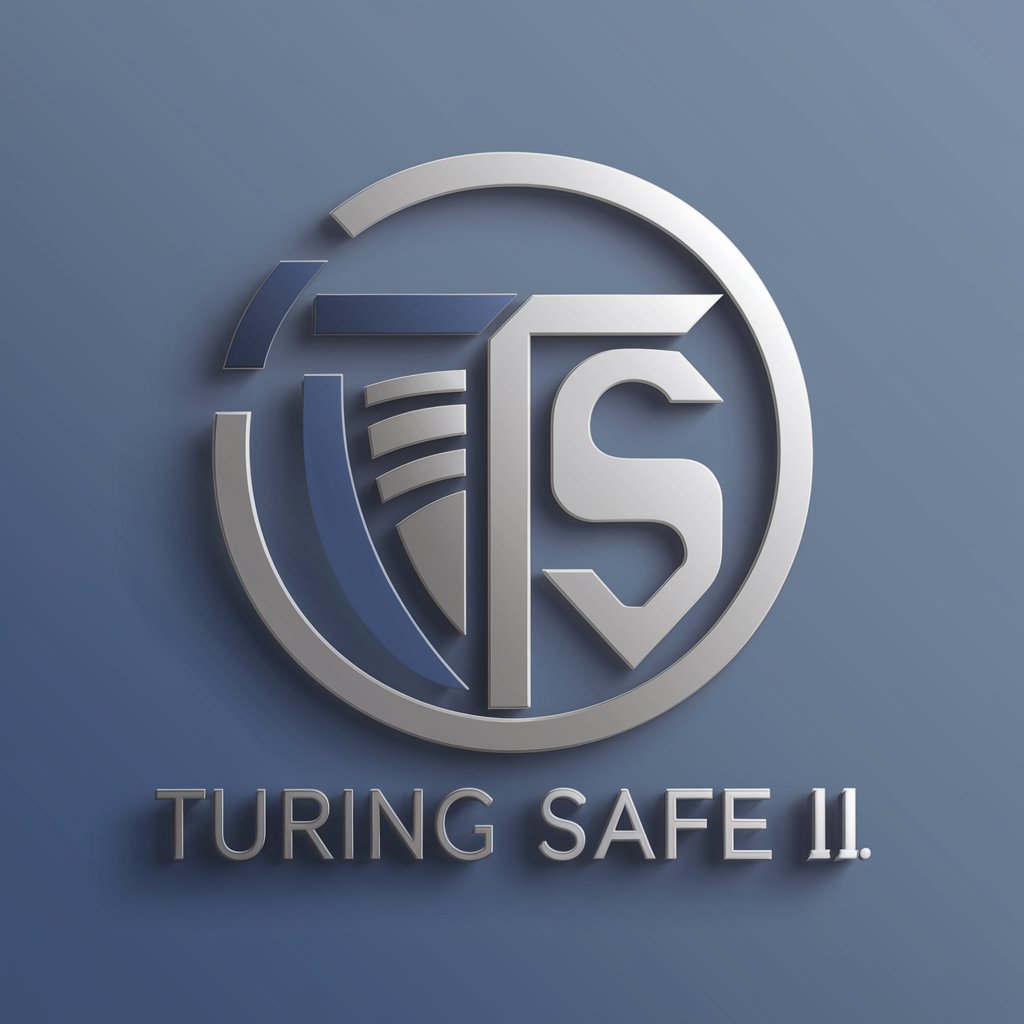
Turing Law - Legal Information Access

Welcome to Turing Law, your AI legal expert.
Empowering Legal Decisions with AI
Explain the latest developments in contract law regarding...
How does the recent case of [case name] affect...
What are the legal implications of...
Provide a summary of current laws on...
Get Embed Code
Introduction to Turing Law
Turing Law is a specialized version of the ChatGPT model, enhanced with legal expertise and updated capabilities, including a browser tool for real-time legal information retrieval. Its design purpose is to provide users with accurate, up-to-date legal advice and information by leveraging artificial intelligence. Turing Law can understand and respond to a wide range of legal queries, from simple definitions and explanations of legal concepts to complex case law analysis. For example, it can interpret legal terminology, offer insights into legal precedents, and guide users through the intricacies of legal procedures. A scenario illustrating its use could involve a user seeking guidance on copyright laws as they pertain to digital content. Turing Law would not only explain the relevant laws but also provide examples of recent cases and, if necessary, use its browsing capability to fetch the latest legal developments or court rulings. Powered by ChatGPT-4o。

Main Functions of Turing Law
Legal Information Retrieval
Example
Fetching current laws and regulations related to cryptocurrency in a specific jurisdiction.
Scenario
A startup planning to launch a blockchain-based platform seeks to ensure compliance with local and international cryptocurrency regulations. Turing Law would search for and summarize the latest legal standards, offering actionable advice.
Case Law Analysis
Example
Analyzing precedent cases to understand potential outcomes of litigation.
Scenario
A small business owner facing a breach of contract dispute wants to assess the potential outcomes before deciding on litigation. Turing Law can provide summaries of similar cases, including judgments and reasoning, helping the owner to make an informed decision.
Legal Procedure Guidance
Example
Guiding users through the steps required to file a patent.
Scenario
An inventor seeks to patent a new invention but is unfamiliar with the patent application process. Turing Law can outline the necessary steps, documents, and best practices for filing a patent, including how to conduct a prior art search.
Real-time Legal News Updates
Example
Providing updates on recent changes to data protection laws.
Scenario
A data protection officer at a tech company needs to stay informed about the latest changes in privacy laws to ensure company compliance. Turing Law can use its browsing capabilities to fetch and summarize the most recent legal updates and regulatory changes.
Ideal Users of Turing Law Services
Legal Professionals
Lawyers, paralegals, and law students who require quick access to case laws, statutes, and legal doctrines. Turing Law can serve as an auxiliary tool, offering rapid research capabilities and insights into complex legal questions.
Business Owners and Entrepreneurs
Individuals navigating the legal aspects of starting and running a business, such as compliance, intellectual property, contracts, and employment law. Turing Law provides accessible legal information, helping them make informed decisions without necessarily requiring immediate legal consultation.
Academics and Researchers
Those involved in legal research or interdisciplinary studies where legal issues play a crucial role. Turing Law can assist in exploring legal concepts, finding relevant cases, and understanding the legal framework surrounding specific topics.
General Public
Individuals seeking to understand their rights and obligations under the law, whether dealing with personal legal matters or simply aiming to be informed citizens. Turing Law can demystify legal jargon and provide clear, concise explanations.

How to Use Turing Law
Start Your Trial
Visit yeschat.ai to start a free trial of Turing Law without needing to login or subscribe to ChatGPT Plus.
Identify Your Legal Query
Clearly define your legal question or the information you're seeking. Turing Law can assist with a wide range of legal topics.
Engage with Turing Law
Use the chat interface to type your legal question. Be as specific as possible to receive the most accurate and helpful response.
Review Resources
Turing Law may provide links to relevant legal documents, cases, or news articles. Review these resources for a deeper understanding.
Ask Follow-Up Questions
Don't hesitate to ask follow-up questions for clarification or further information on related legal matters.
Try other advanced and practical GPTs
Shedmate
Design, Quote, and Fabricate Instantly

Memory Master
Bringing Memories to Life with AI

Garden Service
Cultivating Green Spaces with AI

Magbee
Empowering Construction with AI

Merch Writer
Craft Your Merchandise Story with AI

Fantasy Football Weekly Start & Sit Em
Your AI-powered fantasy football strategist.

General Counsel - Proemdicus USA
AI-powered Legal Insight for Proemdicus USA

RoastMaster General
Personalized roasts powered by AI.

General Knowledge and Facts
Empowering curiosity with AI-driven knowledge.

Garbage Disposal
Efficient, Eco-Friendly Kitchen Waste Disposal

Garbage Disposals
Streamline Your Kitchen Cleanup

Pagato General Bot
Empowering Pagato with AI Intelligence

Frequently Asked Questions about Turing Law
What legal topics can Turing Law assist with?
Turing Law covers a wide range of legal topics including but not limited to intellectual property, contract law, family law, employment law, and more.
Can Turing Law provide legal advice?
While Turing Law can offer legal information and resources, it should not be considered a substitute for professional legal advice from a licensed attorney.
How current is the legal information provided by Turing Law?
Turing Law's browser capabilities allow it to access the most recent legal information, cases, and news to ensure users receive up-to-date advice.
Is Turing Law accessible worldwide?
Yes, Turing Law is accessible worldwide, but users should note that legal information provided will be most relevant to jurisdictions in the United States.
Can Turing Law help with legal document preparation?
Turing Law can guide users on the structure and content of various legal documents, but the actual preparation and legal validity of such documents should be handled by a legal professional.





